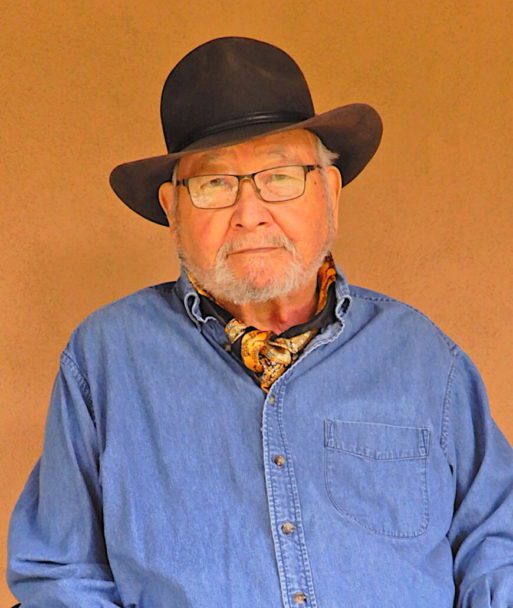
You are present in the past
And appear in memory,
A braid of smoke, a vapor,
And silence is your substance.
You are nothing, Yet you are.
You wend along the way
To a perfect destiny
On a whisper of the wind.
The short poem “Shade,” by Pulitzer Prize-winner N. Scott Momaday, offers a glimpse of the manner in which our loved ones continue with us, even after they’ve died. With simple, yet vivid descriptions — “a braid of smoke, a vapor” — he evokes a presence that’s here, yet not, a vague, ungraspable sense of the ineffable.
The poem appears in Momaday’s forthcoming collection, “The Death of Sitting Bear” — a title referencing a Native American warrior who was, like Oklahoma-born Momaday, from the Kiowa tribe. Along with such short, evocative poems, the book contains a series of 100 haikus, as well as a poetic retelling of Sitting Bear’s life and legacy.

Poet N. Scott Momaday
U.S. Poet Laureate Joy Harjo, who is also a Native American (Muscogee) poet from Oklahoma, asserts that “When you read these poems, you will learn to hear deeply the sound a soul makes as it sings about the mystery of dreaming and becoming.” In the book’s preface, Momaday credits his mother’s love for literature, as well as his father’s oral storytelling, as providing the roots for his poetry. Momaday writes:
Story is the marrow of literature. The story does not end with the last word. It goes on in the silence of the mind, in that region in which exists the unknown, the mysterious, and that origin of the word in which all words are contained. I profess the conviction that there is only one story, but there are many stories in the one. Literature can be likened to a rolling wheel of language. It reinvents itself with every telling of the story, and in its timeless procession it has neither beginning nor end.
Similarly, Momaday’s poem, “Shade,” suggests that human life and love has a manner of rolling on, of taking a form that is timeless, without beginning or end. Whether referencing a dead relative or a long-lost love, the poem suggests that those we’ve left behind are closer to us than they seem.

 “Shade” by N. Scott Momaday
“Shade” by N. Scott Momaday


 “Songbird” by Fleetwood Mac
“Songbird” by Fleetwood Mac
 First the Wealth Gap, Now the U.S. Has a Growing Health Gap
First the Wealth Gap, Now the U.S. Has a Growing Health Gap
 How to Comfort A Dying Loved One
How to Comfort A Dying Loved One














